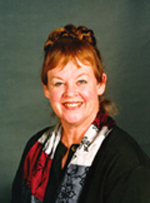
Professorial Fellow, Research School of Biological Sciences, Australian National University, Canberra.
Jenny Graves has a highly acclaimed international reputation for her work in mammalian genetics and comparative genomics on Australian marsupials and monotremes. Her research has raised profound questions about human biology and mammalian evolution. She has made extensive ground-breaking discoveries relating to the cell cycle, control of DNA replication, evolution of the mammalian genome and the function and evolution of sex chromosomes. She graduated from Adelaide University and received a Fulbright award to undertake a PhD in Molecular Biology at the University of California, Berkeley, USA. Jenny was selected as the 2006 laureate for the Asia-Pacific region L’Oréal-UNESCO Awards for women in science. She is a Research Director at the Australian Research Council Centre for Kangaroo Genomics.
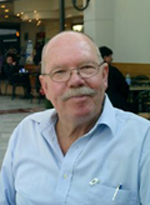
Visiting Fellow, Applied Mathematics Department, Research School of Physical Sciences and Engineering, Australian National University, Canberra.
Barry Ninham is a talented theoretical physical chemist and one of the world’s leading theoreticians in colloid science. He has specific expertise in molecular self-assembly and non-electrostatic interactions between atoms and molecules. He has pioneered the measurement of surface forces and introduced the ground-breaking concept of well-defined microstructures in substances such as emulsions. He completed his undergraduate and Masters at the University of Western Australia and a PhD at the University of Maryland. He is Founder and Head of the Applied Mathematics Department.
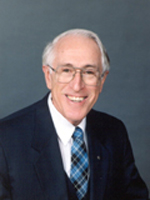
Director, The Bionic Ear Institute and Laureate Professorial Fellow, The University of Melbourne.
Graeme Clark is internationally recognised for inventing the Bionic Ear, the first multiple channel cochlear Implant. His pioneering research on electrical stimulation of the auditory pathways led to the development of the prototype multiple-channel cochlear implant which was implanted in a research volunteer in 1978. Since then, the implant has brought hearing to more than 50,000 deaf people, including 20,000 children, in over 120 countries. He founded The Bionic Ear Institute in 1983 and continues to refine the implant so that patients now understand significantly more speech, and severely and profoundly deaf children can develop near-normal speech.
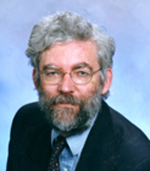
Senior Curator of Invertebrate Palaeontology, Department of Earth and Planetary Sciences, Western Australian Museum. Adjunct Professor Palaeontology, Department of Applied Geology, Curtin University of Technology, Perth.
Kenneth McNamara is internationally renowned for outstanding academic contributions in palaeontology and biology relating to studies of developmental change, rates of growth and phylogeny. He is a well-recognised expert on trilobites and their evolutionary patterns. He graduated from the University of Aberdeen, and obtained his PhD from the University of Cambridge. His taxonomic research has resulted in the description of at least 69 new species and 13 new genera of invertebrates.
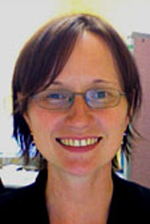
QEII Research Fellow (Australian Research Council), School of Geosciences, University of Sydney, Sydney.
Adriana Dutkiewicz has made exceptional contributions in the field of early Precambrian petroleum geology. She was the first to discover oil inclusions preserved in Archaean and early Precambrian rocks and to demonstrate that primordial biomass was sufficiently abundant to generate hydrocarbons. She has shown that eukaryotes survived extreme climatic events including higher temperatures than previously accepted. Adriana has contributed valuable insights relating to the early evolution of life and petroleum exploration.
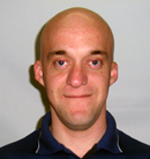
Senior Research Fellow, School for Environmental Research, Charles Darwin University, Darwin.
Barry Brook is internationally recognised for excellence and innovation in conservation biology. His work has raised awareness of the relevance of past extinctions for present biodiversity loss. His research using analytical and computer simulation modelling has contributed to the modern understanding of species extinction dynamics. He gained his PhD from Macquarie University, Sydney on the subject of population viability analysis.
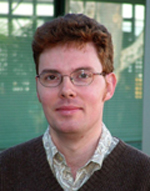
Research Scientist, CSIRO Minerals, Lucas Heights Science and Technology Centre, Lucas Heights.
James Tickner has made impressive scientific contributions in innovation and has secured six patents. He developed nuclear instrumentation for the mineral industry and invented a new type of camera for finding buried landmines. He co-invented the concept of fast-neutron/gamma ray radiography for rapidly screening bulk cargo. He has made important advances in the fields of nuclear simulation and solving challenging measurement or imaging problems.
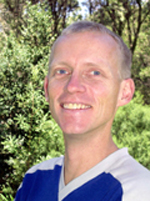
Senior Research Fellow (National Health and Medical Research Council), School of Molecular and Microbial Biosciences, University of Sydney, Sydney.
Joel Mackay has a distinguished career in human physiology and health research that is focused at the molecular level. He discovered the mechanisms behind the vancomycin group of antibiotics, leading to improved derivatives. He has made valuable contributions to understanding the transcriptional regulation involved with forming red blood cells, tracing point mutations, and protein structures, advancing knowledge of inherited blood disorders such as thalassemia.
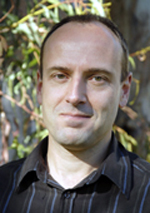
Senior Fellow and Group Leader, Research School of Chemistry, Australian National University
Michael Sherburn is a talented synthetic chemist, developing powerful new methods to achieve efficient chemical synthesis. These new methods have been applied to the synthesis of natural products and designed structures, that are potentially important in medical treatments. His research group has created superbowl container molecules to capture and release drugs and chemicals. These molecules have potential in drug delivery, for removing environmental toxins, catalysing chemical reactions and allowing new chemical purification. His group has developed ingenious methods to synthesise polycyclic natural products, including the anti-cancer agent, podophyllotoxin.
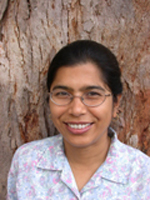
Senior Fellow, Department of Nuclear Physics, Research School of Physical Sciences
and Engineering, Australian National University, Canberra.
Mahananda Dasgupta is a leading international researcher in the field of nuclear fusion physics. Her cutting-edge contributions include precision measurements of unprecedented accuracy. She has developed theoretical models to describe quantum tunnelling of composite objects and designed efficient experimental particle detection equipment. Mahananda completed her PhD at the Tata Institute of Fundamental Research in Bombay.
© 2026 Australian Academy of Science